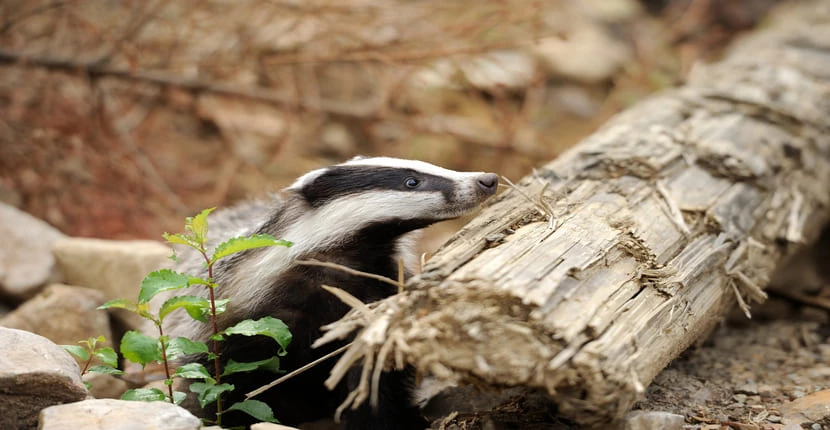
Badger Surveys in Lymm
Get your free quote for a badger assessment todayAt Invasive Weed, we specialise in badger surveys in Lymm to support planning applications, construction projects, and land development while ensuring compliance with UK wildlife protection laws.
Badgers and their setts are strictly protected under the Protection of Badgers Act 1992, meaning any construction, excavation, or land development that may impact badgers requires an ecological assessment in Lymm.
Our team of qualified ecologists conducts preliminary badger surveys, activity monitoring, impact assessments, and mitigation plans, ensuring legal compliance and responsible land use in Lymm.
For a badger survey in Lymm and throughout the UK, contact us today for a consultation.
What Is Our Lymm Badger Survey Process?
Our Lymm badger survey process begins with an initial site walkover, where ecologists conduct an on-site survey to identify badger setts, pathways, and foraging areas.
This is followed by field surveys and monitoring, using camera traps, footprint tracking, and sett inspections to gather data on badger activity levels.
During data collection and analysis, setts are classified as main, annex, subsidiary, or outlier, determining their ecological importance and potential impact on development.
Finally, a detailed badger survey report is produced, outlining findings, legal considerations, and mitigation strategies to support planning applications.
What Types of Badger Surveys Are Available in Lymm?
Badger survey services in Lymm include preliminary assessments, activity monitoring, impact mitigation, and sett closure or relocation planning.
These surveys also include:
Preliminary badger survey Lymm – A desktop study and on-site inspection to identify badger setts, tracks, latrines, and foraging areas.
Badger activity monitoring Lymm – Using night cameras, tracking techniques, and sett inspections to assess sett usage and population activity.
Impact assessments & mitigation plans Lymm – Developing strategies to protect badgers during construction, including buffer zones, habitat management, and alternative foraging areas.
Badger sett closure & relocation Lymm – If a sett must be disturbed, we handle licensing applications, sett exclusion procedures, and artificial sett construction, ensuring legal and ethical compliance.
How Much Does a Badger Survey Cost in Lymm?
Badger survey in Lymm costs range from £500 to £5,000+, depending on survey type, site complexity, and mitigation requirements.
A preliminary badger survey typically costs between £500 and £1,500, depending on the complexity of the site. More detailed surveys in Lymm, such as Badger Activity Monitoring (camera trapping and field surveys), range from £1,000 to £3,000.
If badger mitigation is required, impact assessments and sett relocation plans in Lymm can cost between £2,500 and £5,000 in Lymm, with additional expenses for licensing fees (£200–£500), artificial sett construction (£5,000+), and long-term monitoring (£1,000+ per visit) in Lymm.
Contact Invasive Weed to get customised pricing for badger survey projects in targeted biodiversity in Lymm.
Is a Permit Required for a Badger Survey in Lymm?
The Protection of Badgers Act 1992 in Lymm requires badger surveys and mitigation measures, and it is illegal to disturb, damage, or block access to a badger sett without a valid license. Additionally, capturing, handling, or relocating badgers without approval from Natural England is prohibited.
Construction, excavation, or land clearance within 30 meters of an active badger sett requires proper assessment to ensure compliance. If badger setts are found on-site, a Badger Mitigation License in Lymm may be required before development can continue.
We assist in obtaining permits, conducting mitigation planning, and ensuring full legal compliance.
How Long Does a Badger Survey Take in Lymm?
Badger surveys take from one week to several months in Lymm, depending on sett complexity, seasonality, and project scope.
A preliminary badger survey in Lymm can typically be completed within one to two weeks, while more detailed badger activity monitoring in Lymm may require multiple site visits over several months. Certain surveys must be conducted during specific seasons to ensure accuracy.
Spring and summer in Lymm (March–October) are the best times for preliminary surveys and activity monitoring due to higher badger activity levels, whereas winter (November–February) is suitable for sett inspections, although reduced badger activity can make tracking more difficult.
To avoid project delays, we recommend planning badger surveys in advance to align with seasonal survey windows.
What Are the Environmental Considerations in a Badger Survey in Lymm?
Badger surveys are important for mitigation strategies, which include the implementation of buffer zones in Lymm, alternative foraging areas, and artificial setts to protect badgers.
Reducing disruption in Lymm is another key consideration, requiring measures to minimise light pollution, noise, and habitat fragmentation near active setts. Compliance with conservation laws is also a priority, ensuring that all legal and ecological requirements are met to prevent regulatory breaches and penalties.
By integrating badger-friendly measures into site plans, we help developers balance project goals with wildlife protection.
Contact Invasive Weed to get detailed information on badger surveys in targeted biodiversity in Lymm.
We cover Lymm (Cheshire)
